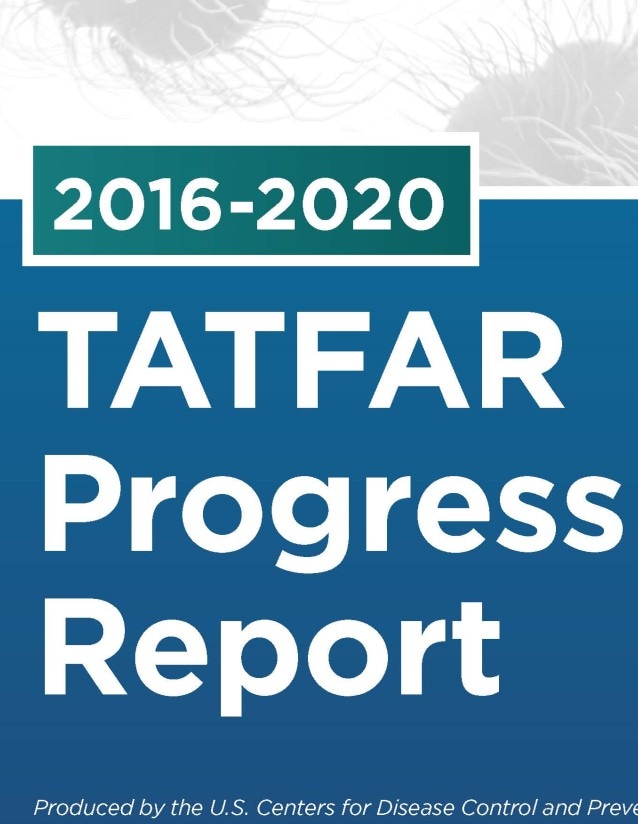Key points
- The European Commission hosted a two-day virtual meeting.
- Transatlantic Taskforce on Antimicrobial Resistance (TATFAR) members assessed their work to date and exchanged views on other international antimicrobial (AMR) initiatives and future work.

Continuing the fight against AMR
Posted: September 2021
On September 14-15, 2021, The European Commission hosted a two-day virtual meeting of the TATFAR with current member representatives, key partners and its newest member, the United Kingdom. With the increasing importance of AMR globally, this meeting served a critical role in:
- Assessing TATFAR's work to date.
- Shaping the Taskforce's future work.
- Exchanging views on other international AMR initiatives.
TATFAR’s work to date
Collaboration across the TATFAR member agencies in the last 12 years has enhanced synergy and communication, leading to strengthened domestic and global efforts to combat the urgent global threat of AMR. Recent successes include:
- Publishing a resource summarizing data sources to quantify antimicrobial use in human health care, for public health agencies, governments, and other stakeholders interested in assessing antimicrobial use.
- Collaborating to develop three publications addressing point-prevalence survey (PPS) methods and PPS data use for hospitals and long-term care facilities/nursing homes.
- Publishing papers summarizing economic incentives for antibacterial drug development.
The future of TATFAR
At the meeting, TATFAR members also discussed and launched the new 2021-2026 work plan, its fourth implementation phase to continue combating AMR. The plan includes new collaboration areas such as sewage-based surveillance of AMR, modeling transmission of antimicrobial-resistant pathogens and diagnostic stewardship.
In the next implementation period, TATFAR will continue to collaborate and share best practices that strengthen domestic and global efforts across four key areas:
- Appropriate antimicrobial use in human and veterinary medicine.
- Surveillance and prevention of AMR.
- Strategies to improve financial incentives, access, research, and development of antimicrobial drugs, diagnostics and alternatives.
- Cross-cutting actions to improve awareness about AMR and appropriate use of antibiotics, and to disseminate information from TATFAR.
TATFAR’s 2021 Virtual Conference
During the conference, TATFAR members reviewed the Taskforce's latest work, discussed coordination with other international initiatives, and outlined how planned future work will help advance priorities to combat AMR.
The meeting kicked off both days with opening remarks by TATFAR Co-chairs, Larry Kerr, Director of Pandemics and Emerging Threats Office within the U.S. Department of Health and Human Services, and John Ryan, Director of Public Health within the Directorate-General Health and Food Safety, European Commission.
TATFAR partner countries also shared how the Taskforce has contributed to AMR efforts within their countries and provided examples of country-specific priorities for the Taskforce's next five-year implementation period. Formal addresses were provided by:
- European Union: Commissioner Stella Kyriakides, European Commissioner for Health and Food Safety
- Norway: John-Arne Røttingen, Special Adviser on Global Health, Norwegian Ministry of Foreign Affairs and Widar Skogan, State Secretary, Ministry of Agriculture and Food
- United Kingdom: David Kennedy, Director General, Food, Farming and Biosecurity System
- United States: Loyce Pace, Director, Office of Global Affairs, Department of Health and Human Services
Prof. Dr. Lothar H. Wieler, President of the German Robert Koch Institute and member of the One Health Global Leaders Group on AMR (Global Leaders Group), also spoke to TATFAR members. As keynote speaker, Wieler spoke on:
- Perspectives on AMR as a global health threat considering the latest developments, notably around COVID-19 and other key One Health challenges.
- Latest high-level international developments and efforts to tackle AMR, including overview of Global Leaders Group and its future direction.
- Perspectives on global future approaches and contributions that TATFAR can make in the fight against AMR.
The U.S. CDC serves as the TATFAR Secretariat and provided overviews of both prior and future TATFAR work.
TATFAR partners agreed to continue collaborations for the next five years (2021-2026). Over the past 18 months, the Taskforce evaluated ongoing work, redeveloped priorities, engaged new partners, and considered new areas for collaboration. From these conversations, members built the new work plan draft for the next five-year implementation period and developed a 2021 TATFAR Progress Report highlighting successes accomplished during the taskforce's third implementation phase (2016-2020).
The meeting ended with generous closing remarks from TATFAR Co-chairs and Sandra Gallina, Director-General of the European Commission's Directorate-General on Health and Food Safety. TATFAR's efforts at these meetings and throughout the year provides an enhanced AMR understanding internationally and an increase in the exchange of scientific information. Moving forward, the peer-to-peer relationships between TATFAR's technical experts continues to support global action on AMR.
Follow along on social media with #TATFAR. For more information about TATFAR, email TATFAR@cdc.gov.
